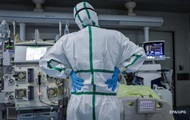Ambon (ANTARA) – The Maluku Provincial Aids Control Commission (KPA) stated that in terms of work, soldiers are at high risk of transmitting hepatitis C virus (HCV) infection due to the shared use of goods while living in barracks, and frequent injuries during training.
“Soldiers often live in closed places together (barracks) and in the training process are also often injured, things like that can cause transmission of the hepatitis C virus,” said Head of the Maluku Province KPA Dr Sri Anantha Widya in Ambon, Thursday.
He said almost the same as hepatitis B, hepatitis C is also spread through contact with body fluids and sexual intercourse, but mostly transmitted through blood transfusions or needles contaminated with HCV.
HVC is genetically very varied and has a high mutation rate that allows the generation of a variety of viruses, so that no vaccine has been developed to prevent hepatitis C infection.
Soldiers, said Dr Sri, are one of several groups at high risk of being infected with HCV because it is possible to share goods while living in the barracks, such as razors, nail clippers and toothbrushes.
In addition, HVC that can infect through blood can also be transmitted to soldiers who are injured during training, if the wound is not cleaned carefully and covered with a clean bandage or plaster.
“Don’t use items such as razors, nail clippers and toothbrushes with other people. Use gloves if you have to clean other people’s items that contain infectious fluids such as used bandages or tampons,” said Dr Sri.
He said the common symptoms of hepatitis C were flu, fatigue, nausea, vomiting and sometimes jaundice. As many as 80 percent of people with hepatitis C have long-term infection, and most people don’t know they have HCV without going through routine medical tests or until liver damage occurs.
Apart from members of the military, the groups recommended for screening for hepatitis C are users of injection or inhaled illegal drugs, individuals with abnormal liver function results and the cause is unknown, babies born to mothers with hepatitis C sufferers, and health workers who are accidentally exposed to the virus. blood or needles.
Then, individuals undergoing long-term hemodialysis (dialysis) treatment, people infected with HIV, perpetrators of multiple sex partners or with partners who have been diagnosed with hepatitis C.
“To find out if you are infected with hepatitis, you can do a blood test or HBcAG test to diagnose the characteristics of the hepatitis virus, liver biopsy and liver function tests,” said Dr Sri.
– .

/i/2004608956.png?f=meta)
